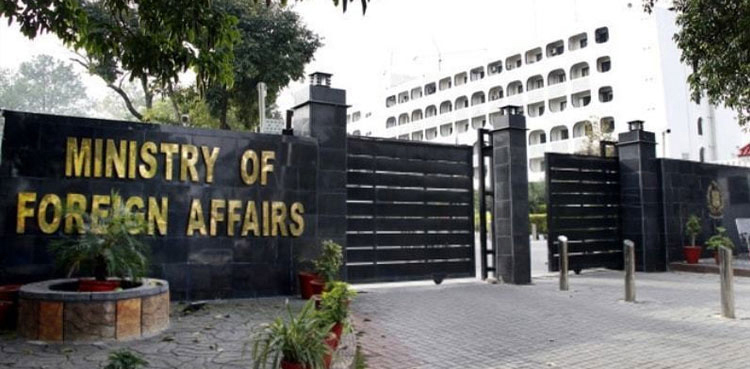A three-day conference of Pakistani envoys worldwide is currently underway in the Ministry of Foreign Affairs (MoFA) Islamabad that will culminate today January 06 (Saturday). The Country’s ambassadors, high commissioners, and heads of Pakistan missions from important capitals across the globe are attending this important session. Foreign Minister Jalil Abbas Jilani outlined the framework of discussions at the Envoys’ Conference and its importance as a deliberative forum on diplomatic challenges and opportunities for Pakistan given the global and regional developments. Jilani also underscored the need for strengthening the anchoring role of the Foreign Office in foreign policy formulation and implementation. Prime Minister Kakar, in his keynote address, shared his perspective about the pressing demands on the conduct of Pakistan’s foreign policy to align it with present-day imperatives.
Historically, the foreign policy of any nation always derives from its core national interests comprehensively encompassing the political, economic, security, and territorial integrity of that nation. Foreign Policy governs the fundamental principles of dealing with other nations, with friends and foes, bilateral and multilateral consortiums, global treaties, foreign trade as well as travel and tourism of its citizens. Pakistan’s foreign policy is guided by the country’s vision as a progressive, economically ascendant state that prioritizes the socio-economic well-being of its people. Pakistan’s foreign policy revolves around fundamental values of peace, regional equilibrium, Strategic balance, shared prosperity, and building partnerships with its neighbors, regional and extra-regional states based on equality and reciprocity. Meanwhile, several internal factors including the country’s history, geography, domestic politics, economy, ideology, and societal dynamics play a crucial role in shaping its foreign policy objectives. Externally, global and regional geopolitical dynamics, bilateral and multilateral relationships, and security concerns also significantly impacted Pakistan’s foreign policy choices throughout the past. Historically, being a security state, Jammu and Kashmir dispute and India’s eternal enmity toward Pakistan had always been a major driving force behind Pakistan foreign policy decisions since from day one and still this factor has a vital role in shaping Pakistan foreign relations together with newly emerged menace of terrorism that badly affects Pakistan geopolitical and security environment in the country. Pakistan’s economic considerations such as trade and investment, development aid, and pressure and coercion from the international financial institutions including the World Bank and the IMF significantly mold Islamabad domestic and foreign policies. It has been also observed that powerful friendly countries including the Kingdom of Saudi Arabia, China, the United States and others also influence Pakistan domestic and foreign policy decisions as and when their interests intersect with their competing nations.
Country’s envoys act as representatives of their nations in the host countries and they have very limited approach and resources. The foreign policy of any nation stems out of its economic and financial stability, military power, industrial growth or geopolitical significance, that enables any nation to project its influence through diplomatic maneuvers, political engagement and mediations at the global level. Envoys performance is largely dependent on the bilateral relations, convergence of political, economic and trade interests, otherwise their role is not more than a messenger or a postman. Historically, Pakistan could not pursue an autonomous foreign policy because of its security concerns, Kashmir dispute, and persistent economic degradation, which has been an unceasing dilemma of the country throughout history. Pakistan missions abroad have no utility except provision of consular services to Pakistani diaspora in foreign countries. Although, Prime Minister Kakar vowed to champion the Jammu and Kashmir cause through active diplomacy, but arranging Kashmir Day events in Embassies and Consulates on yearly basis, media coverage and photo shoots of Ambassadors are insufficient to liberate Kashmir or highlight Kashmir cause at the global level. For that end, courageous political leadership and kinetic diplomacy at the UN and important capitals is essential to revive the Kashmir dispute and take it to logical conclusion in accordance with the UN resolutions.







